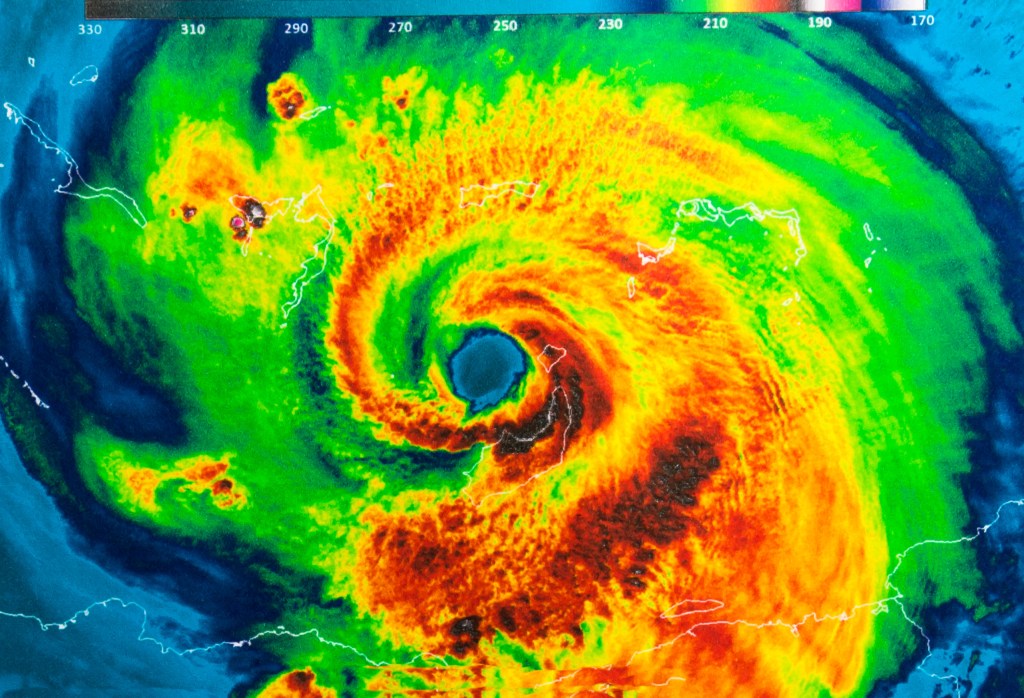Federal and state emergency planners have their hands full these days with responding to the COVID-19 pandemic. But spring is also the time of year when FEMA and the state emergency management agencies in coastal regions start getting ready for hurricane season. This year, what is predicted to be an active hurricane season will be coming on top of a projected continuing pandemic — and that has officials concerned.
Florida’s worries. The Miami Herald has this report (see: “Coronavirus could create ‘compound disaster’ in Florida as hurricane season looms,” by David Smiley, Alex Daugherty, and David Goodhue). “Florida’s U.S. senators called on the federal government Wednesday to issue guidelines on how states should handle evacuations and storm shelters in the event of a hurricane,” the paper reported. “And with less than two months to go until the tropics reach the conditions that forecasters expect will generate an above-average storm season, government officials and local politicians are hustling to prepare for what Broward County Mayor Dale Holness described as a ‘double disaster’ of a hurricane strike amid a COVID-19 outbreak.”
“Under normal conditions, preparing for a major storm — forecasters expect there will be four hurricanes this year that are Category 3 or stronger — is complicated, requiring planning for shelters, food, energy, potable water and disaster cleanup,” the Herald reported. “But a coast-to-coast coronavirus outbreak is exacerbating that effort by stressing the Federal Emergency Management Agency, forcing the local agencies that respond to hurricanes into early action, and complicating the ability to pack thousands of people into the public schools that routinely serve as storm shelters.”
New Jersey prepares. In New Jersey, local officials have more pressing concerns than hurricanes, NJ.com reported (see: “As hurricane season looms, could N.J. possibly handle a natural disaster, too?” by Michael Sol Warren). “Down the shore, Marty Pagliughi, the director of Cape May County’s Office of Emergency Management, said his team has started discussions for hurricane season, but noted that their attention is focused on acquiring personal protective equipment (PPE) for healthcare workers and first responders in the county. Potential hurricanes this summer aren’t exactly at the top of the list right now. ‘We’ll find a way,’ Pagliughi said of hurricane preparation. ‘I don’t even want to think about it, to be honest with you, but we have to think about it.'”
Louisiana adapts. In Louisiana, Governor Jon Bel Edwards said the coronavirus will change the way the state responds to storms, according to a report by CBS station 4WWL (see: “How will Louisiana prepare for COVID-19 hurricane season?” by Paul Dudley). “We are not going to posture the same way,” Gov. Edwards said. “For example, to shelter the same number of people, we are going to have to have multiple shelters, so we can practice social distancing.”
“We are going to need to provide PPE,” the governor said. “We are going to have additional medical personnel in any shelter we open.”
South Carolina plans. In South Carolina, officials say they’re writing a new playbook from scratch, according to Myrtle Beach Online (see: “‘Will it be tough and ugly? Yes’: Horry leaders prepare for hurricane-coronavirus mix,” by Tyler Fleming. “Local emergency leaders now have to plan for the worst all while dealing with a pandemic: what an evacuation order might look for Horry County’s coast; how the Red Cross will house people seeking shelter; and how critical services can safely continue if a loss of electricity makes remote working impossible.”
“Preparing for the 2020 hurricane season is uncharted territory for Horry County’s public safety leader Randy Webster, even after decades of working in Horry County’s emergency response teams,” the report says. “’There are so many more challenges this year than I’ve ever had to face because it’s still evolving,’ Webster said. ‘ … My biggest problem is we don’t have any best practices to look at it.'”



